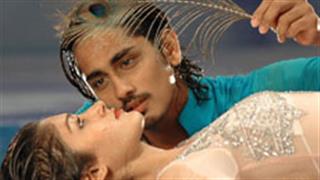You together with Salim Khan have made cult films which raised the bar of Hindi cinema. What according to you is the formula of a blockbuster?
If I knew the formula I would not have written a disaster like Roop Ki Rani Choron Ka Raja! But I can tell you the formula to make a sure shot flop! Embark upon a plot, thinking that the film you are making will be the greatest ever.
Second, choose a script thinking that you wouldn't like to watch a film like this, but the audience will. I guarantee that the film you make will be a flop!
What is your take about the films being made today?
The variety of stories we have today are incredible! But we are losing out on characterisation. Look at the characters in our films today-they are neither strong nor heroic. They have been replaced by the ordinary man.
When I go into the theatre I want to see an icon, a role model and a person I can admire and look up to. I miss such characters in todays films.
Did you and Salim saab ever think that Deewaar would become a cult film, and remembered for its dialogues even today?
Not at all! Salim and I never thought that the film, or any other films we were making, were progressive or would take the society forward in any way. We wrote stories instinctively.
What according to you was the strong point of your screenplays?
The films we wrote are not remembered because of the plots, as hundreds of films with similar plots have been made. The characters and their interaction made the films stand out.
But I must mention that at times what we thought was new and catchy wasJaved Akhtar missed out by the audience. Like Sunny Deol's character in Arjun was a completely new one, but hardly anyone spoke about that.
On the other hand, people come up to me and say what a wonderful dialogue Kitne aadmi the or Tera kya hoga Kaliya was, and I wonder what is so earth-shattering about such a simple line.
You and Salim were the only writers who gave a bound script to film-makers during the 70s. Did that also contribute to your success?
I know, in those days a bound script was a big thing. But I think developing the art of getting a producer interested in your script is more important. To understand their psyche and make them see your point. Basically it's more about how to win and influence people!
Do you think a formal training is essential to becoming a good screenplay writer and lyricist?
 When I came to Mumbai I didn't know the difference between editing and writing a screenplay. That's how naïve I was. Everything I learnt was hands-on. I guess it all depends on how passionate you are about your work.
When I came to Mumbai I didn't know the difference between editing and writing a screenplay. That's how naïve I was. Everything I learnt was hands-on. I guess it all depends on how passionate you are about your work.Do you think after the success of Slumdog Millionaire there will be more influence of Western cinema on Hindi cinema?
The furniture, the upholstery and clothes may all be very Western in our films, but the soul, sensibilities and flavour of Hindi cinema will always remain Indian, very Indian.
What was the thought behind conceptualising villains like Gabbar Singh and Mogambo in your stories?
Our villains were exceptional indeed. They did not lech only at women, but at everyone! Woh sab ko buri nazar se dekhte the. Making them rather magnificent and larger than life and not some downmarket rouges was intentional.
You are known to be a very prolific poet and writer. Don't you think you compromise on quality when you write for Hindi films?
When I write for an enlightened audience my work is more abstract and high-flown. But when writing stories or lyrics for a Hindi film which is for a mass audience I have to write in a language which they understand. This is not compromising on quality but it arises out of a desire to communicate with the masses.
What are the essentials of a good screenplay?
Awareness, simplicity and intrigue!



















